Should I Play the Witcher 1 on Easy
The firstWitchergame on average takes around 50 hours long to complete (main story + side quests),Witcher 2: Assassins of Kings takes around 40 hours, andThe Witcher III: Wild Hunttakes 130 hours. All of those are just single playthroughs, there are also the expansions. If you've played only the third game so far, then you'll know how much of a time sink these games are.
This brings us to the question, should you dedicate at least 100 hours on the first twoWitchergames? Absolutely... maybe. Okay,The Witcher 3 has spoiled us with Game of the Year material and truth be told, it's hard to go back to the two games. On the other hand, the franchise is a trilogy that relies heavily on narrative. So, to help you come up with an answer to that question, here are some reasons why you should or shouldn't play the first twoWitchergames. Weigh them wisely.
10 DARKER ATMOSPHERE (TO PLAY)
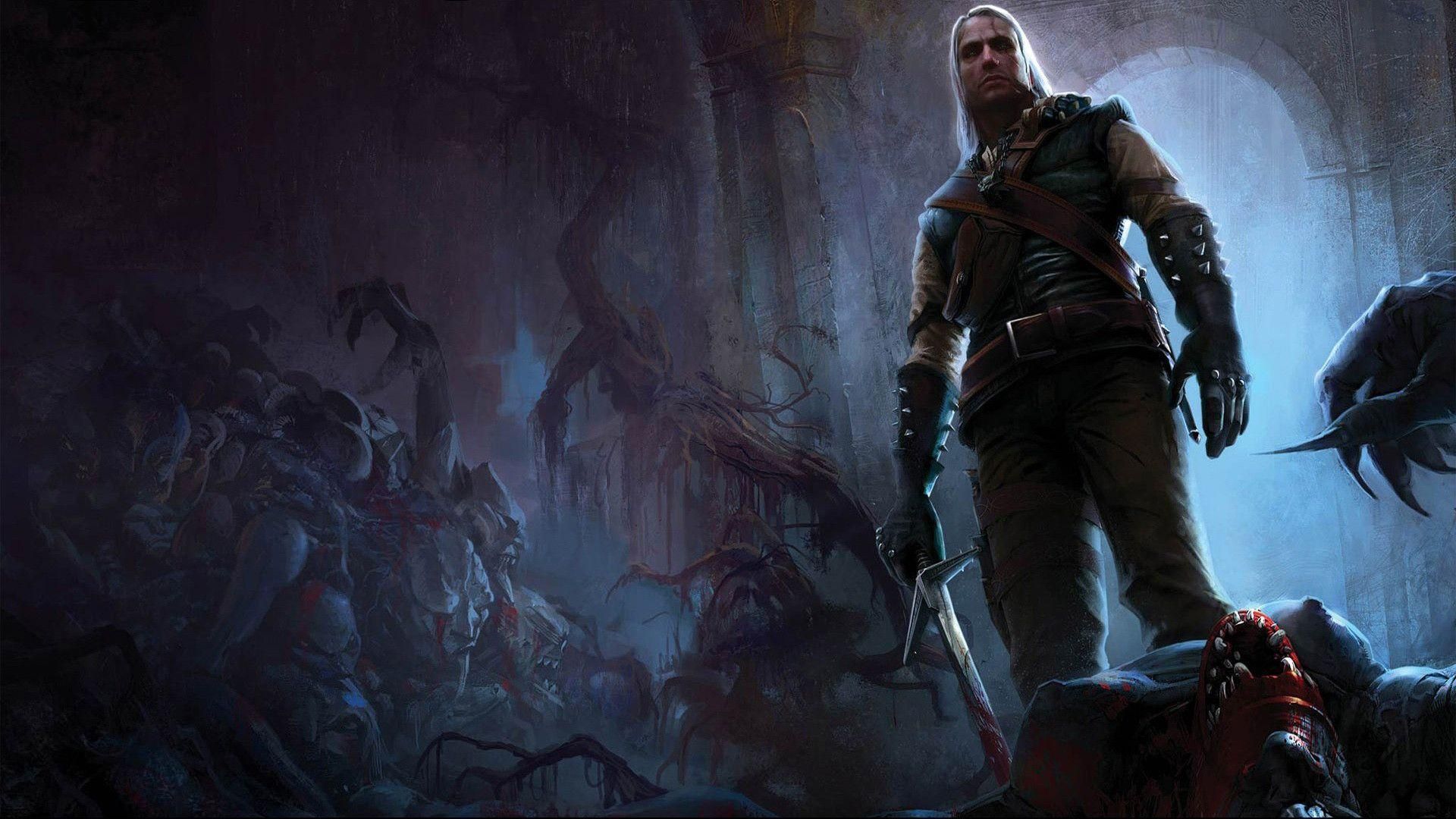
Back when CD Projekt RED was still "young," they made their games differently. They had a more niche vision in mind for the firstWitchergame. As a result,The Witcher(2007) is a lot darker and more has a more serious tone both in world-building and visuals. Even the user-interface of the game speaks volumes for the Gothic style.
Additionally, the music is a lot heavier here with the harmonic combination of violins and electric guitar. The distinction is quite clear between the first and the thirdWitchergame that it feels like a vastly different game altogether like it was from another intellectual property; all this just from the game's mood alone. For some, this less mainstream feel for the game makes it more memorable.
9 OUTDATED GRAPHICS (NOT TO PLAY)
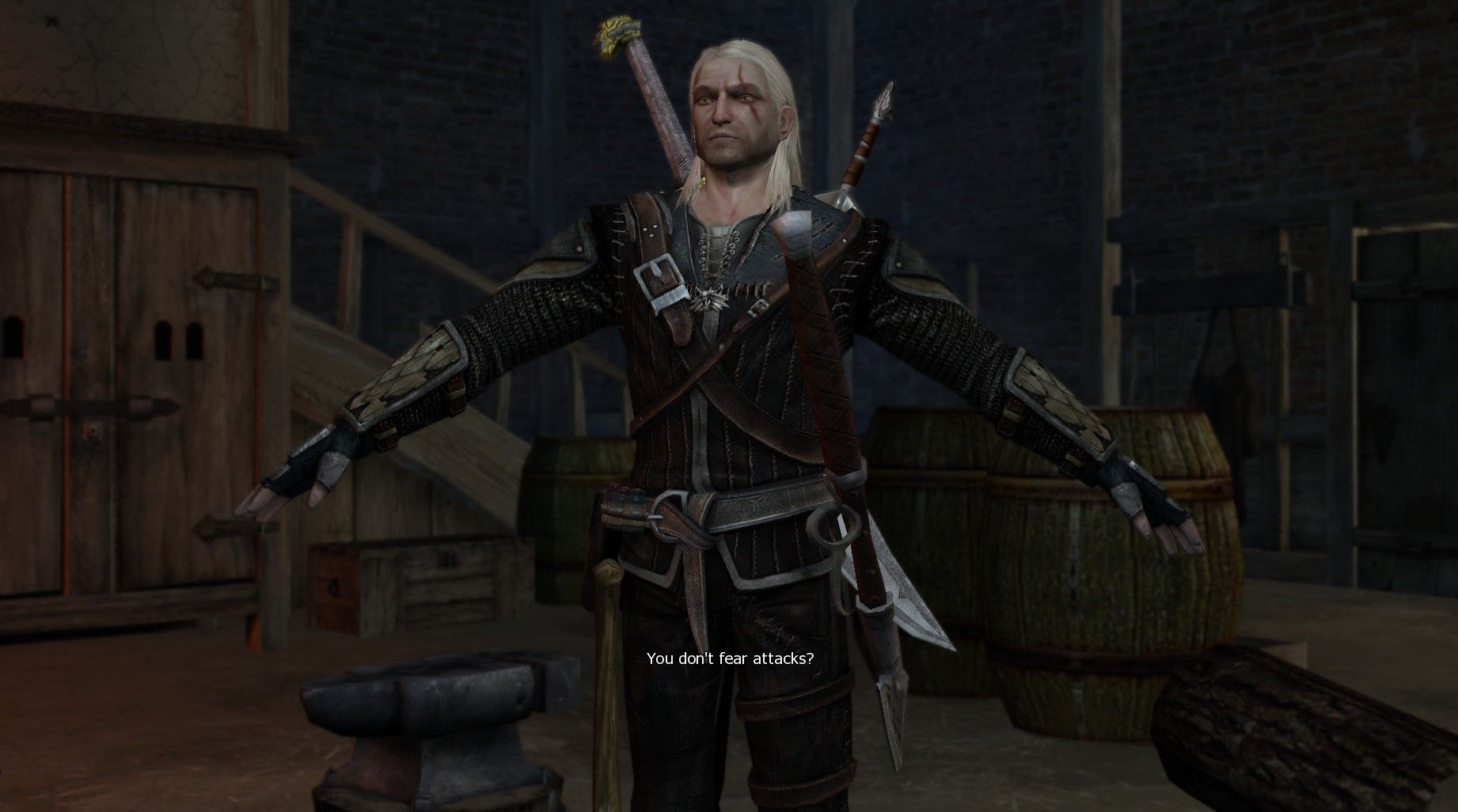
One of the most obvious reasons why some people don't go back or don't even try the first twoWitchergames is the noticeably outdated graphics. While they were marvels back in their own respective eras of gaming, they didn't age well especially with the rapidly progressing graphics technology for PCs.
A quick look at the firstWitchergame would probably be enough to deter some of the younger gamers who have been awed by the visuals of the third game. It's not just the way they look that's bad too; their performance is also not the best as they were made with old graphics technology in mind. Mods can help with the visuals but only to a certain degree.
8 THE WITCHER 2 IS GAME OF THRONES ON STEROIDS (TO PLAY)
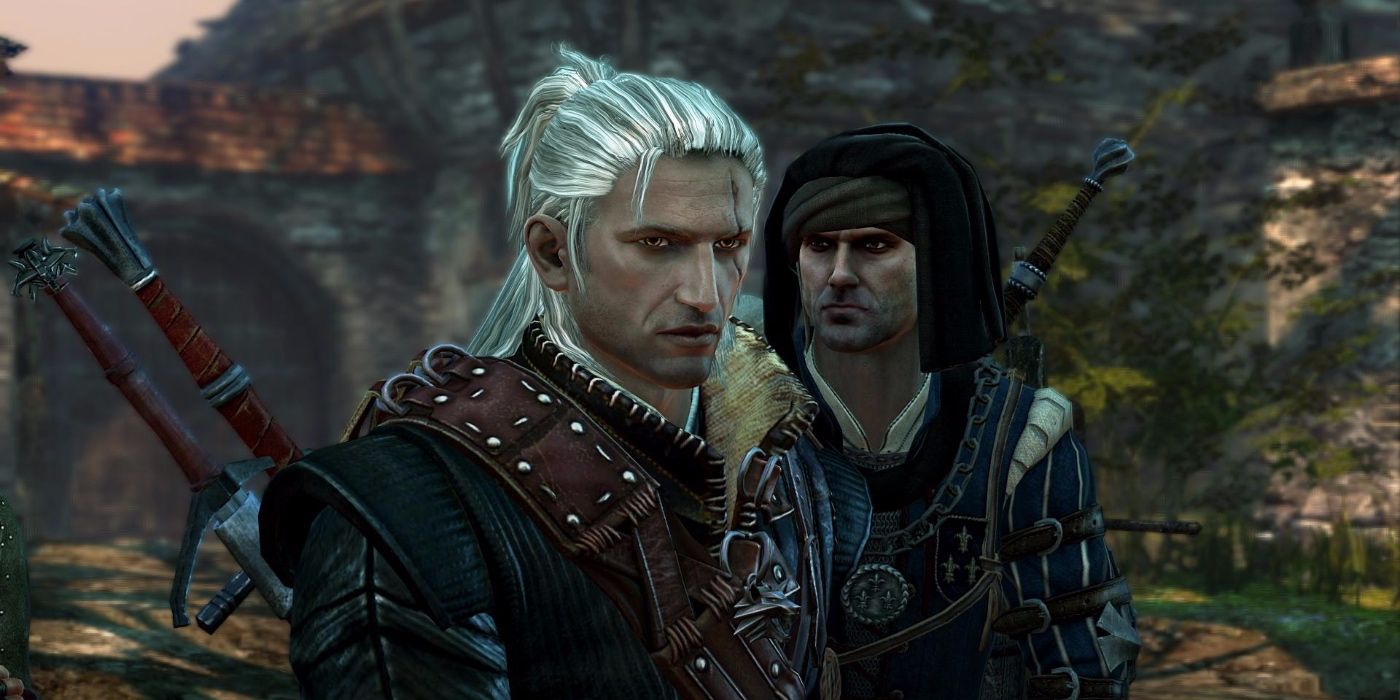
This one's mostly an exclusive reason for the second game. CD Projekt RED overhauled everything from their first game and experimented with new things. What they came up with can be summed up asGame of Thrones on steroids, the game's title says it all,Assassins of Kings.
The second game pits you deep into a political grey area that's arguably more polarizing than any roleplaying game (RPG) has ever done. Other than that, the whole kingslayer plot is Geralt at his most vulnerable; he was even forced to become a fugitive because of it.
7 OUTDATED GAMEPLAY (NOT TO PLAY)
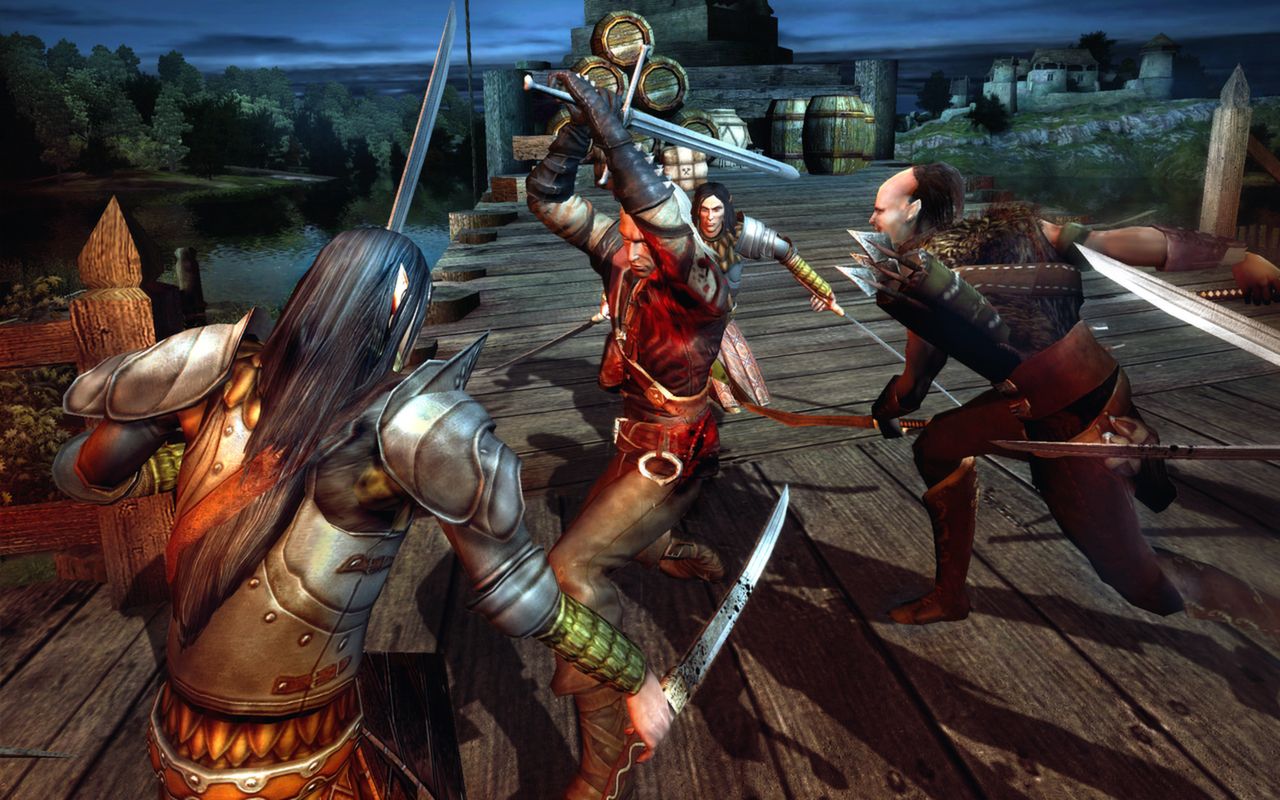
In conjunction with the outdated graphics engines of the first two games, the gameplay is also one of the main reasons why it's so hard to go back.The Witcher has a weird point-and-click hybrid combat which is clunky to the point of unplayable by today's standards. It does let you switch to an over-the-shoulder action perspective but it's still awkward regardless.
Meanwhile,The Witcher 2 improved a lot but feels more likeThe Witcher 3's combat on its infancy stage. It's way too unrefined and is akin toDark Souls but with less weapon variety and fewer move sets. The combat difficulty curve was also inverted; it's frustratingly difficult at the start and then starts to be laughably easy by late-game once you know how to abuse Quen. If anything, the gameplay for the first and second games are huge backward steps compared to the third game.
6 RICH STORIES (TO PLAY)
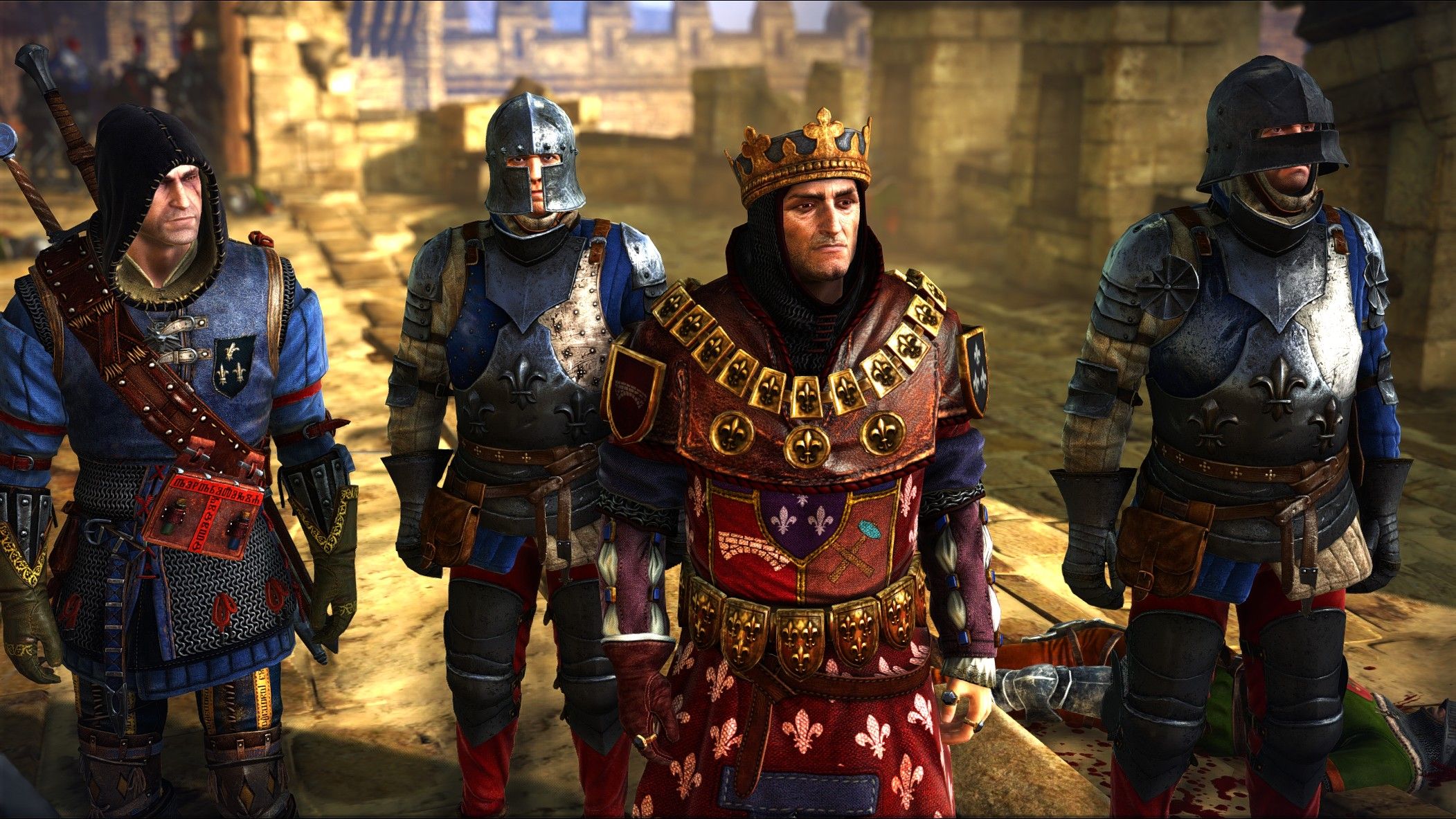
If you can look past the outdated gameplay and the graphics, you'll definitely be rewarded with some of the most well-crafted storytelling in video games. CD Projekt RED really did admirably translating Andrej Sapkowski'sWitchernovels into the gaming medium. Of course, some rough spots were present; they were still a small studio back then.
The first game tried its best to replace the "Ciri" storyline and follow up with the events of the books. What came after that was a convoluted yet intriguing tale about regicide that stands out well on its own. Plus, you get to know more about Geralt's longtime friends, Dandelion, Zoltan, Vesemir, Triss, Lambert, and Eskel.
5 LESS FREEDOM (NOT TO PLAY)
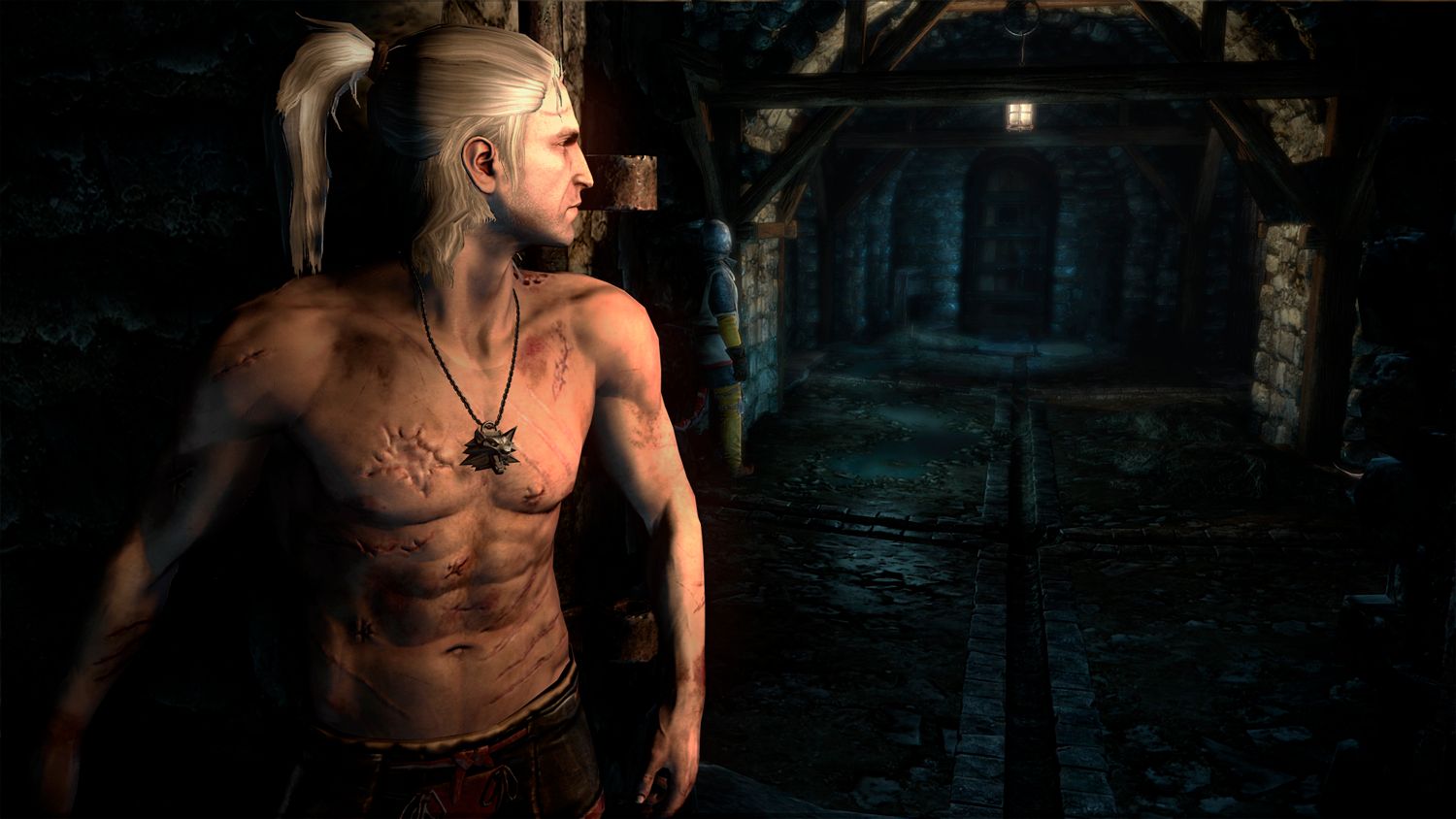
Several years ago, near-seamless open-world games were still difficult to pull off with the limited gaming hardware. As such, they weren't as popular as they are now. Consequently, the first twoWitchergames offered a lot less liberty to players than the third game. They were open-world, only, they're a bit cramped by today's standards.
The Witcherwasn't linear but the areas you can explore are rather small even when compared to earlier open-world games likeThe Elder Scrolls IV: Oblivion. As forThe Witcher 2, it's actually a lot more linear than the first one; advancing in the main quest bars you from the previous areas of the game. On top of that, Geralt also can't jump in both games, making navigation quite tedious.
4 MORE WITCHERING (TO PLAY)
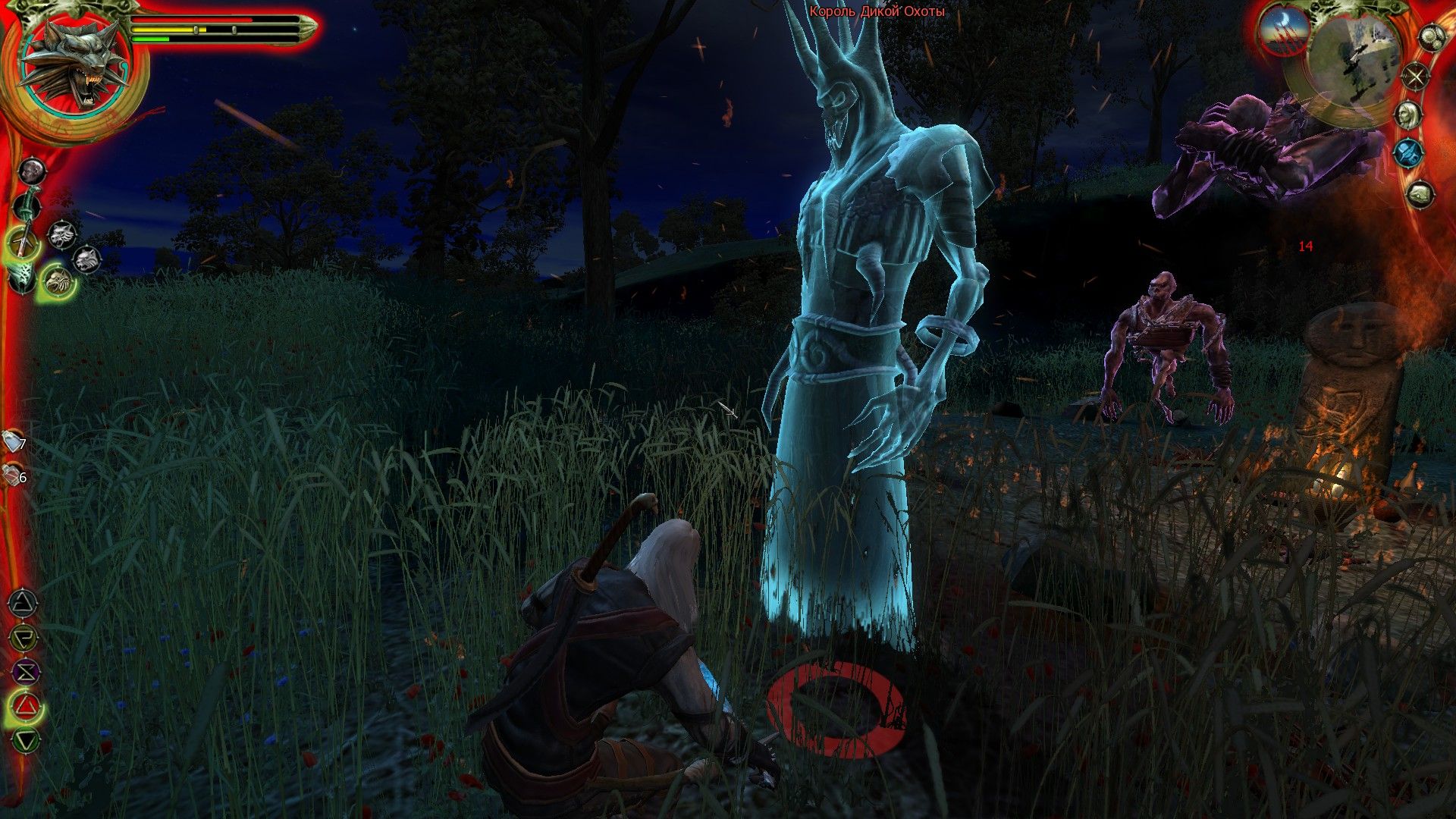
If you're hungry for more monster-slaying and the occasional detective work or political cloak and dagger, then you'll find plenty of those in the earlierWitchergames. Both of them are chock full of things to do for Geralt of Rivia which can keepWitcherfans busy.
In fact, they can even be more enjoyable compared to some of the things you can do in other RPGs (save forThe Witcher 3, of course). You'll find no shortage of witcher work and swords and armor to craft and collect both in the first and second game. Then again...
3 LOW-QUALITY QUESTS (NOT TO PLAY)
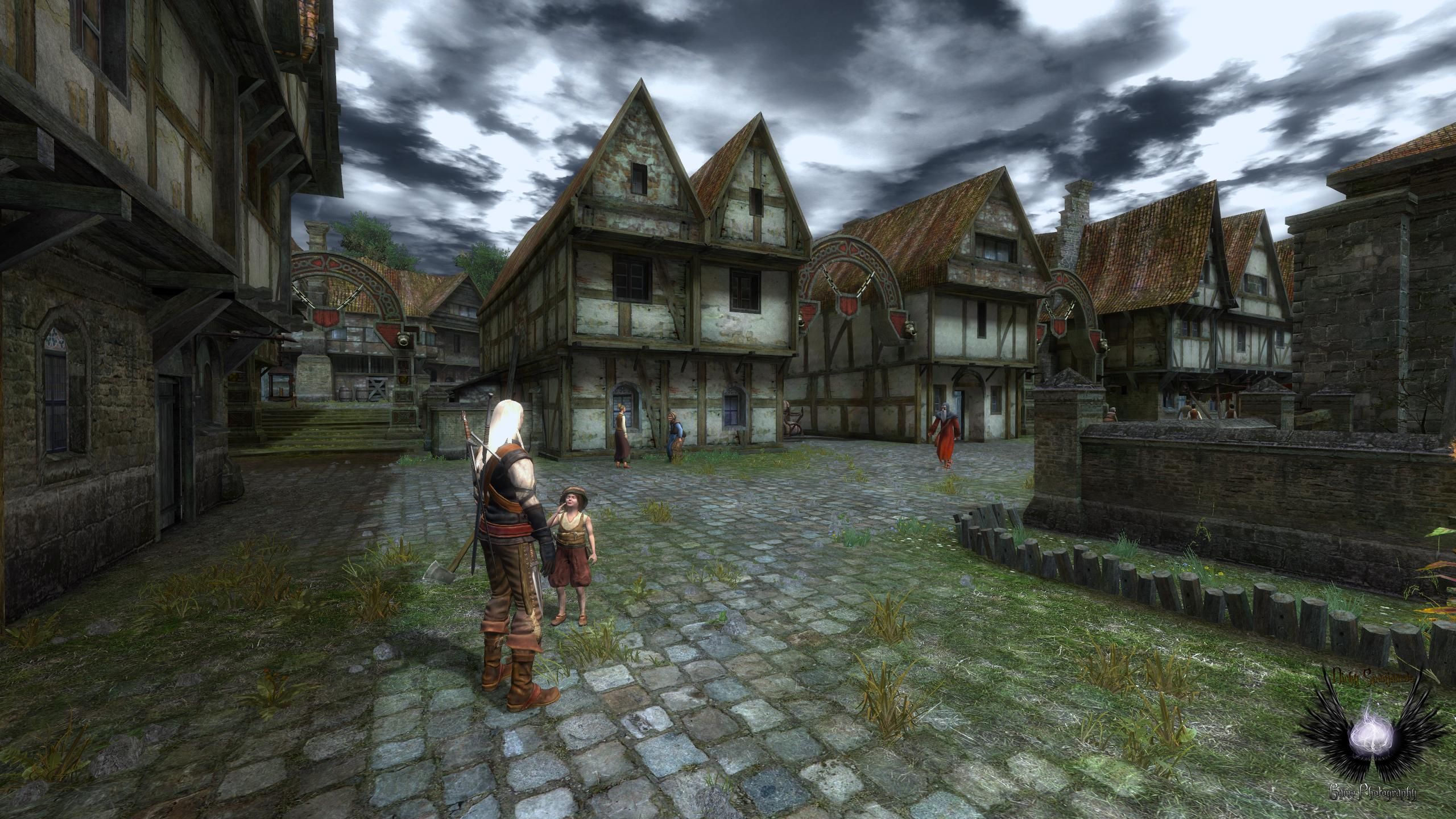
With that said, despite the commendable lengths of the first and second game, most of their side quests are just not worth playing, particularly in the first game. Some of the side quests are also even embarrassing for single-player RPG standards; the first game even has frequent fetch quests where you must collect X number of monster body parts. Exciting.
Yes, there are tons of quests but they're not of quality.The Witcher 2 does improve upon this quality but that meant a lower number of side quests available, hence the lower gameplay length. If you're easily bothered by boring filler side quests after playing the third game, you're better off avoiding the first twoWitchergames.
2 WITCHER 3 MAKES LOTS OF REFERENCES (TO PLAY)
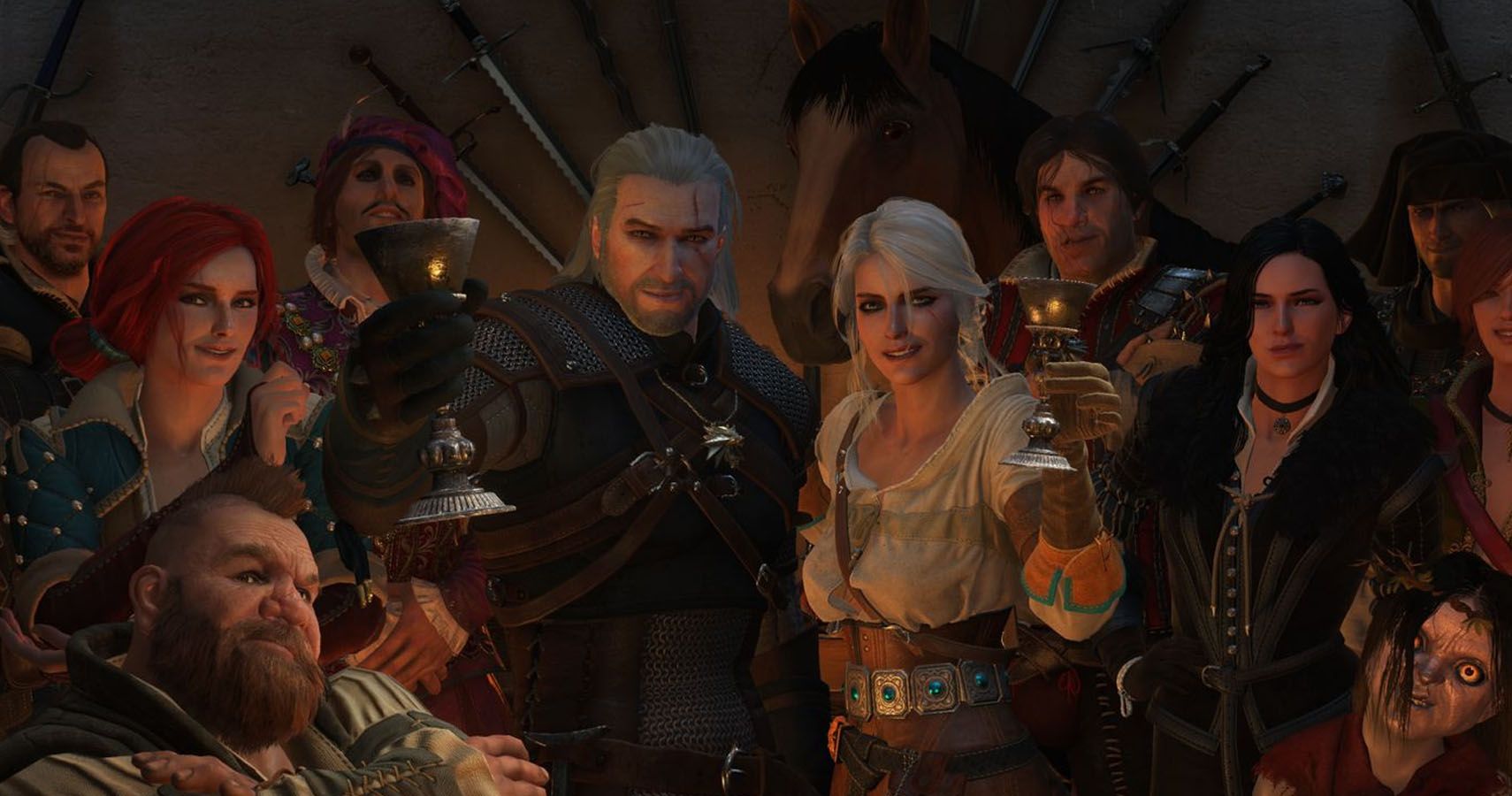
Obviously the third game is calledWitcher 3 for a reason; it's the third chronological game in the series and as such, builds upon the happenings of the first two games. In that regard, the third game makes numerous references to old characters and events present in the first two.
These are also big events (especially the main quests) and are worth seeing for your own eyes. Plus, you'll finally understand what most of the characters are talking about.
1 WITCHER 3 IS A CONTINUATION OF THE BOOKS (NOT TO PLAY)
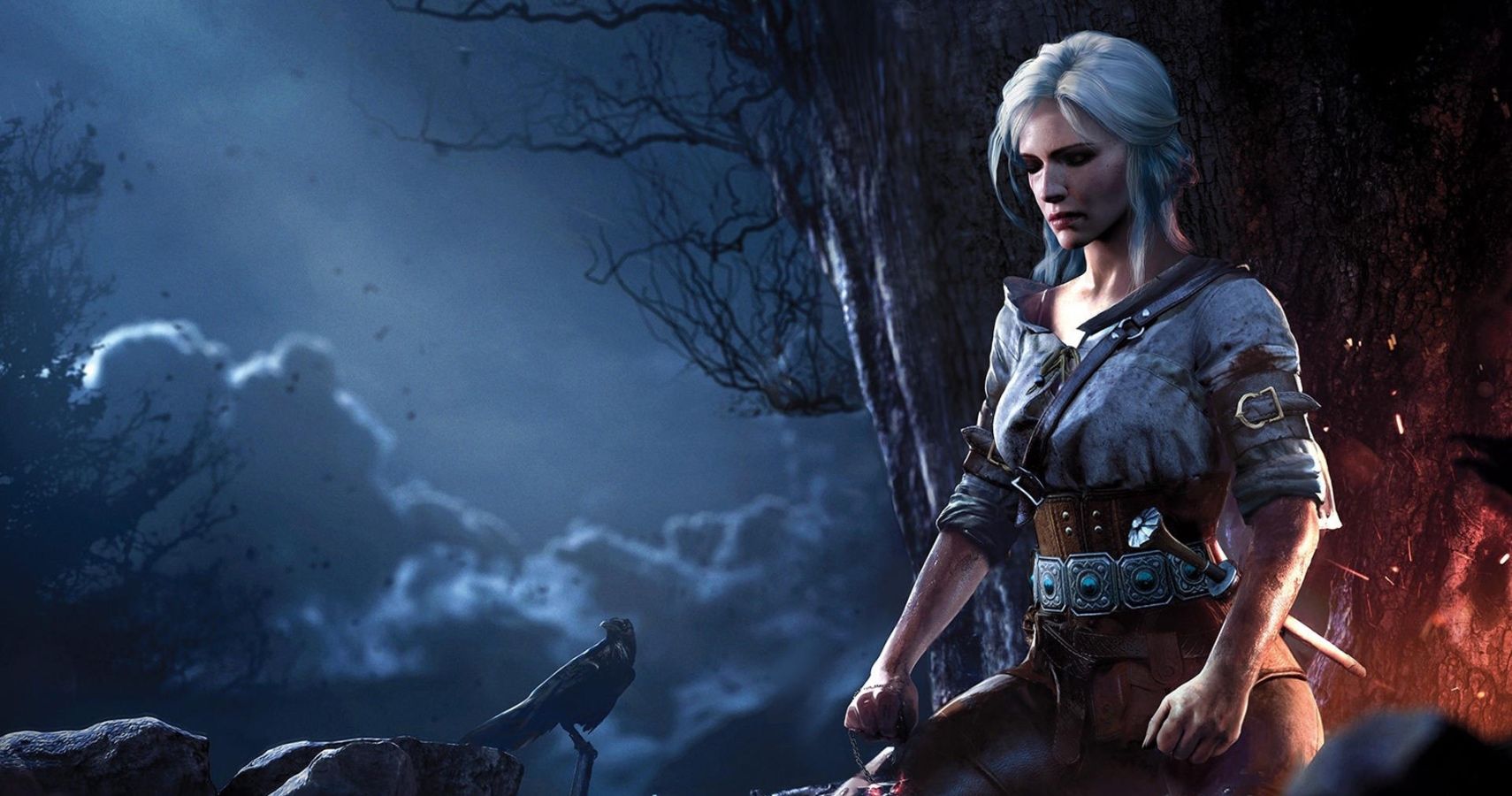
Now, despite being the third game,The Witcher 3's story can actually be treated as the direct continuation of where Andrej Sapkowski's books ended. That means if you're aWitcherbook fan or purist and you played the third game first, then you're really not missing much by skipping the first two games.
Though, if you're also a book fan, then chances are you probably already played the first two games. In essence, it does feel like the developers were still testing the waters in the first two games, hence the canonically inconsequential stories. This is also why the third game is and always will be the definitiveWitchervideo game.
Source: https://www.thegamer.com/witcher-reasons-play-frst-two-games/
0 Response to "Should I Play the Witcher 1 on Easy"
Post a Comment